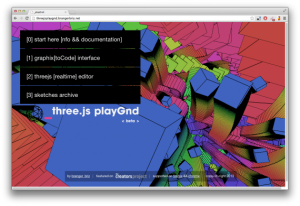

View Case Study
digital-literacy tool for learning webGL based on experimental art ethics rather than traditional “best-practices"
“an interface is not a thing; an interface is an effect [...] Ideology is ‘modeled’ in software” — Alexander Galloway Software tools, even creative software, aren’t without their biases. Intentionally or not, an interface reflects the ideology of the developers that made it. The _playGnd aims to make a suite of tools ( webGL / three.js ) accessible to contemporary net artists by modeling the interface on the ethics of their practice: copy+paste, experimentation && play.
- Live Project Link: http://threejsplaygnd.brangerbriz.net/
- Why this project is worthy of a UX Award:
applicable to any creative person who prefers play && experimentation over more conventional/structured forms of learning. When we say ‘ethic’ before, we mean this not in the traditional ‘moral’ sense, but in the general sense: as a set of principles for practice in accordance with some convention. In this case the ‘practice’ is an experimental new-media art one; rather than traditional approaches to programming centered around ‘best practices’ + conventions (stability, structure, hierarchy, clear goals, debugging) the _playGnd is instead modeled on new-media ethics (experimenting, playing, copying+pasting, remixing, sharing). You learn to + make webGL sketches (using the three.js library) by ‘considerately fux’n around’. the three.js playGnd tutorial has been watched over 147,000 times with hundreds of sketches submitted and remixed by net artists in the archive.
- Submitted By: Branger_Briz
See More 2014 Submissions >>